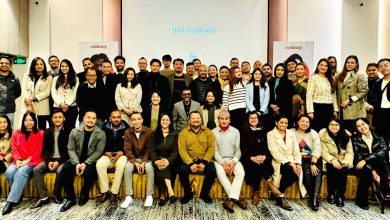MANILA, PHILIPPINES – The COVID-19 pandemic was an unforeseen crisis that brought unprecedented uncertainty to companies globally. One such challenge is leading employees in a time of great upheaval. Companies have struggled with huge changes in their day-to-day operations as they tried to balance business continuity with the health and safety of their employees.
In a recent webinar held by the British Chamber of Commerce, Jeffrey Johnson, senior vice president for Human Capital Resource Management of Teleperformance Philippines, shared several tips on how companies can adapt to this new normal in a way that would help motivate and ensure the wellness of their employees.
Focus on your most important asset: Your people. In the new normal, people remain the most important asset of companies. In times of crisis, companies need to maintain open communication with their employees. This can be done through digital channels but it is important to deliver meaningful interactions to help provide support and encouragement. Overcommunicating and increasing the frequency of communications can help ease anxieties — for example, instead of just sending emails, try creating recorded video messages and chats from leaders addressed to employees.
Job security is another common concern amidst the pandemic and Jeffrey advised addressing this directly, if possible, to ease concerns. In line with this is to assess existing employee benefits — one critical piece is to check with their health insurance provider to make sure their employees are covered in any COVID-related problems. Another is to provide for the needs of people who work on-site such as hazard pay, and potentially covering meals, accommodation, and transportation. Companies can look into benchmarking among others in their industries to help them craft these new benefits.
It is also important to have employee engagement activities hand-in hand and to think about mental health and wellness. Consultations with professionals can help especially when employees express that they are burned out. Have a resource available that employees can speak to, whether it be through their HMO or within their organization.

Foster a culture of innovation. Innovation plays a big role in adapting to the new normal — companies shouldn’t be afraid to get out of their comfort zone. For instance, widespread work from home arrangements were implemented in most BPO companies, including Teleperformance. In terms of hiring and recruitment, some companies have begun utilizing digital technology to screen and process applicants. Teleperformance, Jeffrey shared, has been using chatbots and video interview platforms, which has been received positively by applicants. He also stressed that companies must ensure data and information security amid remote work setups by utilizing existing technology and investing in advanced software.
Protect employees by adapting government-mandated policies. Companies should ensure that they keep track and adopt government-mandated policies for health and safety in the workplace. Implementing health and safety protocols onsite is critical such as temperature checks in facilities, social distancing among employees, and routine disinfections of the workplace. In addition, revisiting your attendance policy and allowing employees who are not feeling well to stay home can be a proactive safety measure for companies. Company policies should also ensure that employees who may contract the disease are protected from discrimination in the workplace.
Empower employees through learning and development. The predicted new normal will also be heavy on digitization as people try to minimize physical interactions. Companies should prepare their employees for this upcoming change through e-learning tools and upskilling programs, which not only helps the company meet the potential challenges of the new normal but also adds more value to the services that they offer. Teleperformance Philippines, for example, hosted free English training webinars for the public during the quarantine period. The company also recently launched its Analytics Academy that aims to grow the skills and expertise of Teleperformance employees and build a critical mass of Data Science and Business Analytics professionals in the company who will support a forward-looking data culture to address the challenges of the workplace of the future.
Stress the importance of corporate social responsibility.The social needs today are greater than they have ever been, making Corporate Social Responsibility even more important. Jeffrey shared that this could help to improve morale and the psychological well-being of employees by making them feel like they are a part of something bigger. Some ways companies can help are through donating meals to communities and frontliners, community outreach, and assisting employees in the company that are at higher risk such as persons with disabilities. For example, during the pandemic, Teleperformance employees raised funds to donate personal protective equipment to frontliners, shared grocery items to families at the Teleperformance-Gawad Kalinga Village in Tanay, Rizal and sponsored meals for pediatric patients of Kythe Foundation.
The COVID-19 pandemic may continue to pose challenges for companies, but the crisis could also be seen for companies as an opportunity to learn, grow, innovate, and be more compassionate. “Our goal during this pandemic should not only be about surviving through this crisis, but to come out stronger and better as an organization because of it,” shared Jeffrey.










